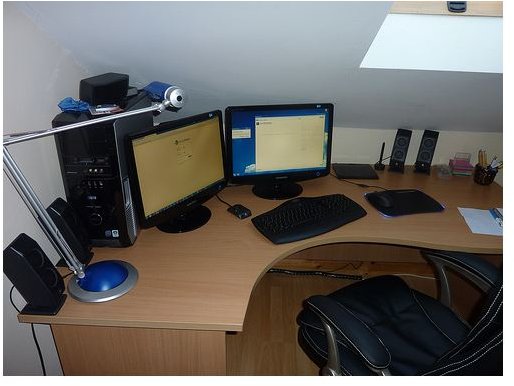Remote Office Fixes to Keep You Feeling Connected
Working remotely might seem like a dream come true. A short commute, no boss hanging over your shoulder, master of your own domain; these are all fantastic benefits, but what happens when you start to feel like you’re the forgotten one? How do you make remote working feel less remote? Several solutions come to mind.
Virtual Conferences
Setting up a virtual conference time every day, or every other day, can help you to feel more connected to your coworkers. If connecting with a coworker isn’t possible then perhaps connecting with a family member or close friend will do. These interactions can help to ground your day, and bring you back to that point of connection with someone.
As long as these conferences stay short and don’t interfere with daily work then they can actually give you the focus you need to be more productive throughout the day. Most companies also have specialists to help remote workers through situations like this. A quick call to the corporate office should get an alienated worker in touch with someone who can help. If this doesn’t work, it might be time to adjust the physical office space instead.
Redecoration
Sometimes the office space itself is the problem. If you have a cluttered area, it can add to the stress of a remote office situation. The mess in the area can seem overwhelming and it may seem like there isn’t enough time in the day to fix it all. The feeling of being all alone and unable to handle the job and office on your own can be fixed with a simple rearranging of the office space. A Feng Shui expert might be able to help organize your home office, or you can follow a few simple rules for a cleaner, more efficient office.
After clearing out the clutter in the office area, it might help to bring in a curved desk that either has a view out of a window or the door to the office. The desk could be a U shape to give the most workspace with the least movement or, if you get fidgety, a long linear desk with a chair on casters.
Another small change is to place natural lighting (either a window or skylight) or use “daylight” light bulbs in the office area. These lights should not reflect off the desk. These reflections can cause eye stress and headaches as well as inhibit production.
Fixing the interior of the office can help a remote office worker feel more in control and more connected to the office environment. Placing business cards, handbooks or even posters with the name of the business on them can also remind someone that they are part of a team.
Transition Space
When a remote office is actually in the home there needs to be a defined area that helps a person transition from “home” to “work.” Placing a name plaque on a door to the office or simply painting the office door a different color than the rest of the doors in the house can denote the entry into a newly defined area. If the office is not confined to its own room, using shoji screens to define the space may be the best option. These screens allow light in and can help a disconnected worker feel like there is someone just on the other side.
Another transition is in the area of clothing. Dress the part. If you put on your work clothes to go to work, instead of wearing PJs and fuzzy bunny slippers, it can change your whole state of mind. A work “uniform” can make you feel like part of a larger team even if they aren’t in the same general area.
Take Breaks
One of the biggest problems with working remotely is that there is little or no structure to follow. Without being disciplined, a worker can fall into the trap of not knowing when to take breaks or what to do with them. It is best that a break is scheduled just as if you were at a 9-5 office. Take a break at 10:30, Lunch from 12-1 and another break at 2:30. This will create several subsections of day that can be filled with short-term job assignments. When the day is divided like this, there isn’t much time to think about being alone. Place a phone call or two during each session between breaks and your day will go quickly and the disconnected feeling will disappear with it.
A remote office can eliminate the stress of commuting to the office and make it possible to work even when you are feeling under the weather, but if it isn’t managed properly this freedom can often turn into a sense disconnection. This can be remedied by taking steps to structure the day just like it would be in the actual office. A clean, organized office space with ample lighting, a plant or two, and references to the corporation on the desk and walls, can lead to a sense of belonging. If this doesn’t work, there is always the optional conference call or call to a support staff member at the main office. There are several solutions to the feeling of alienation that remote office employees can sometime suffer and most of the time they are offered by the company itself.
References
Laidlaw, Georgina. “How Office Policies Can Benefit Remote Workers — Online Collaboration.” GigaOM — Tech News, Analysis and Trends. Web. 25 July 2011. https://gigaom.com/collaboration/how-office-policies-can-benefit-remote-workers/
“Office Feng Shui and Business Feng Shui.” Feng Shui Your Home and Business. Read Feng Shui Book for Better Life! Web. 25 July 2011. https://www.thespiritualfengshui.com/office-feng-shui.php
Image courtesy of Sean MacEntee @ Flickr - license CC2.0 Attribution
